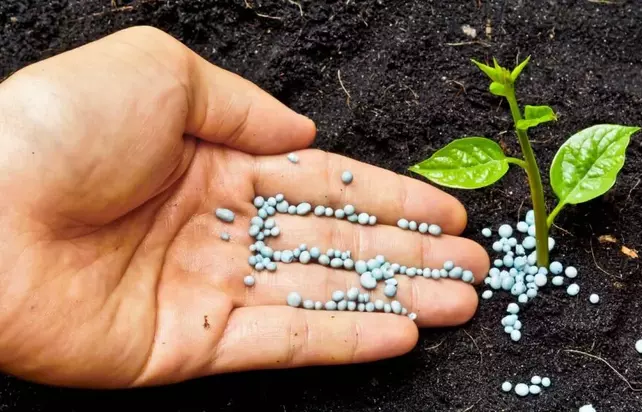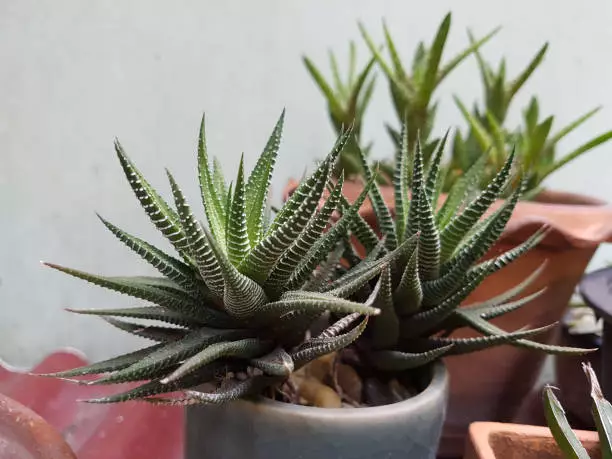Thinking about using ammonia for your homemade weed-killing solution? While ammonia is a common weed and grass killer, it’s quite toxic and should be used with proper caution. This article will take you through all you need to know about using ammonia as a herbicide.
Does ammonia kill weeds?

Yes- ammonia does kill weeds. The problem- however- is that ammonia is a non-selective weed-killer and will kill all plants it comes into contact with. Therefore- if you’ve got desirable plants in your garden or grass growing on your lawn- you might want to avoid using ammonia solutions.
Ammonia eliminates weeds by seeping through their roots or top growth. It’s not an instant weed-killer but is very effective. Once inside a plant, ammonia lodges onto its cells and starts dehydrating them, consequently leading to the death of all top growth.
It’s important to spray all parts of the undesirable plants, including the soil around them, so that some of the ammonia can seep into the roots and kill them off too. Failure to do so may lead to plant regrowth later on. By killing off weeds up to their root systems, ammonia ensures that the undesired plants won’t spring up again in your garden at a later date.
What weeds will ammonia kill?
Ammonia can be used to eliminate all common types of lawn and garden weeds, including the following:
- Crabgrass– ammonia-based herbicide solutions will consume this annual lawn weed up to the roots; ensuring that it never regrows.
- Dandelions– this perennial weed occurs mostly around spring and can usually be spotted in the spaces between patio pavers and driveways.
- Poison Sumac– ammonia can also help you get rid of this thick-foliaged shrub.
- Common Ragweed– scientifically known as Ambrosia artemisiifolia, this is one weed you’ll be happy to use ammonia on to get rid of it forever; as it can cause serious health issues for those with allergies.
- Ground Ivy– an ammonia-solution drenching is probably the most effective way to get rid of this common lawn and garden weed.
How to use ammonia to get rid of weeds
When using ammonia as a lawn or garden weed-killer, follow the procedure below for maximum safety and efficacy:
- Mix ammonia and water in a bucket in a ratio of two-one (two-thirds ammonia, one-third water).
- Stir up the solution then transfer it into a garden spray can or spray bottle with a proper, adjustable nozzle.
- Adjust the nozzle of your garden hose pipe to a fine jet and spray directly for a few weeks. Repeat this process on these same weeds until they die out.
- If you like the results from the previous step above, repeat the process with the rest of the undesirable plants until they all die out.
- When you’re done, ensure to get rid of your gloves and wash your hands thoroughly with soap and water, as ammonia is toxic to humans as well.
Side effects of using ammonia to kill weeds
When ammonia is mixed with other weed-killers like chlorine bleach, the resulting solution produces toxic fumes that may be harmful to human health. What’s more, ammonia is an indiscriminate weed-killer and will kill off your desirable plants too, if it comes into contact with them. Finally, when used in excess and it seeps into the soil, ammonia may prevent the growth of new plants in that area.
Precautions
- Wear a pair of gardening hand gloves when handling ammonia.
- Wear a face mask when using homemade ammonia solutions that produce toxic fumes, such as chlorine bleach mixed with ammonia. The same goes for commercial herbicides with ammonia as a key ingredient, such as ammonium sulfate weed-killer.
- If you’ve got desirable plants in your garden, adjust the nozzle of your hose pipe to a very fine jet to ensure you target just the weeds; as ammonia will kill all plants it comes into contact with.
You can also mix ammonium sulfate with other herbicides containing glyphosates to get rid of tenacious garden and flower bed weeds such as clover. Ammonium sulfate works to boost the herbicide’s absorbability, thus making the weed-killer more effective.
References:
[1] Michigan State University Extension: Do I need to add ammonium sulfate to my glyphosate spray mix?
[2] Neil Harker, JSTOR: Ammonium Sulfate Effects on the Activity of Herbicides for Selective Grass Control



